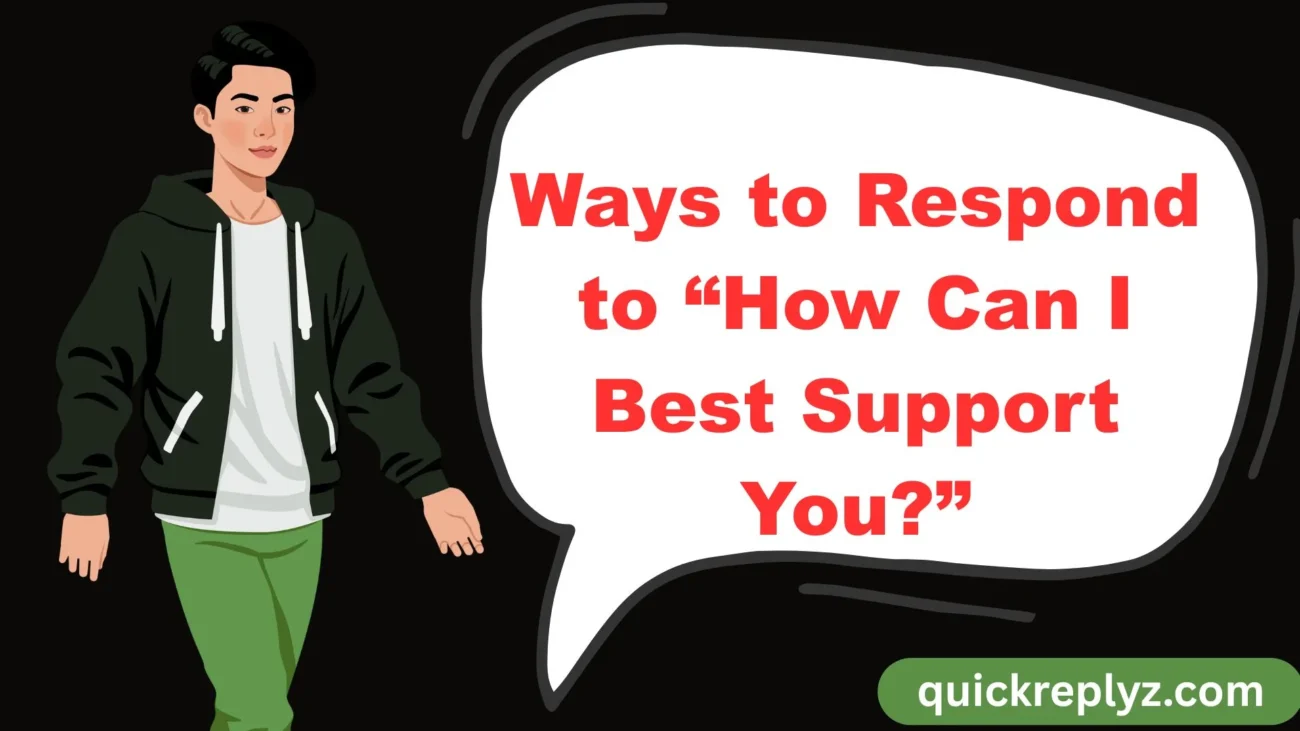When someone asks, “How can I best support you?”, it’s a sign of care, empathy, and a willingness to help. But figuring out how to respond can be tricky — especially if you’re overwhelmed or unsure what you need. This guide offers 30 thoughtful, practical, and emotionally intelligent ways to respond, depending on your mood, circumstances, or relationship with the person.
Another or Professional Way to Says “How Can I Best Support You?”
- “Just listening right now would mean the world to me.”
- “Could you check in on me later this week?”
- “I need help organizing my thoughts—can you talk it out with me?”
- “Honestly, I’m not sure yet—but thank you for asking.”
- “Could you help me with [specific task]?”
- “Keep reminding me that I’m doing okay.”
- “Can you help me set boundaries with others?”
- “Can we spend some quiet time together?”
- “I need help staying accountable to my goals.”
- “Can you give me a distraction?”
- “Help me laugh again.”
- “Can you run an errand for me?”
- “Just tell me everything will be okay.”
- “Remind me to take care of myself.”
- “Help me break this into small steps.”
- “Validate my feelings—even if they don’t make sense.”
- “Can you back me up in that meeting/convo?”
- “Just sit with me, no need to talk.”
- “Remind me of my strengths.
- “Can you help me plan next steps?”
- “Hold me accountable without judgment.”
- “Check in randomly—it helps more than you know.
- “Help me stay off my phone.”
- “Can you take something off my plate?”
- “Give me honest feedback—but gently.”
- “Tell me what’s worked for you.”
- “Can you sit with me while I do this scary thing?”
- “Keep me grounded when I spiral.”
- “Can you remind me I’m loved?”
- “Just keep being yourself—that supports me the most.”
1. “Just listening right now would mean the world to me.”
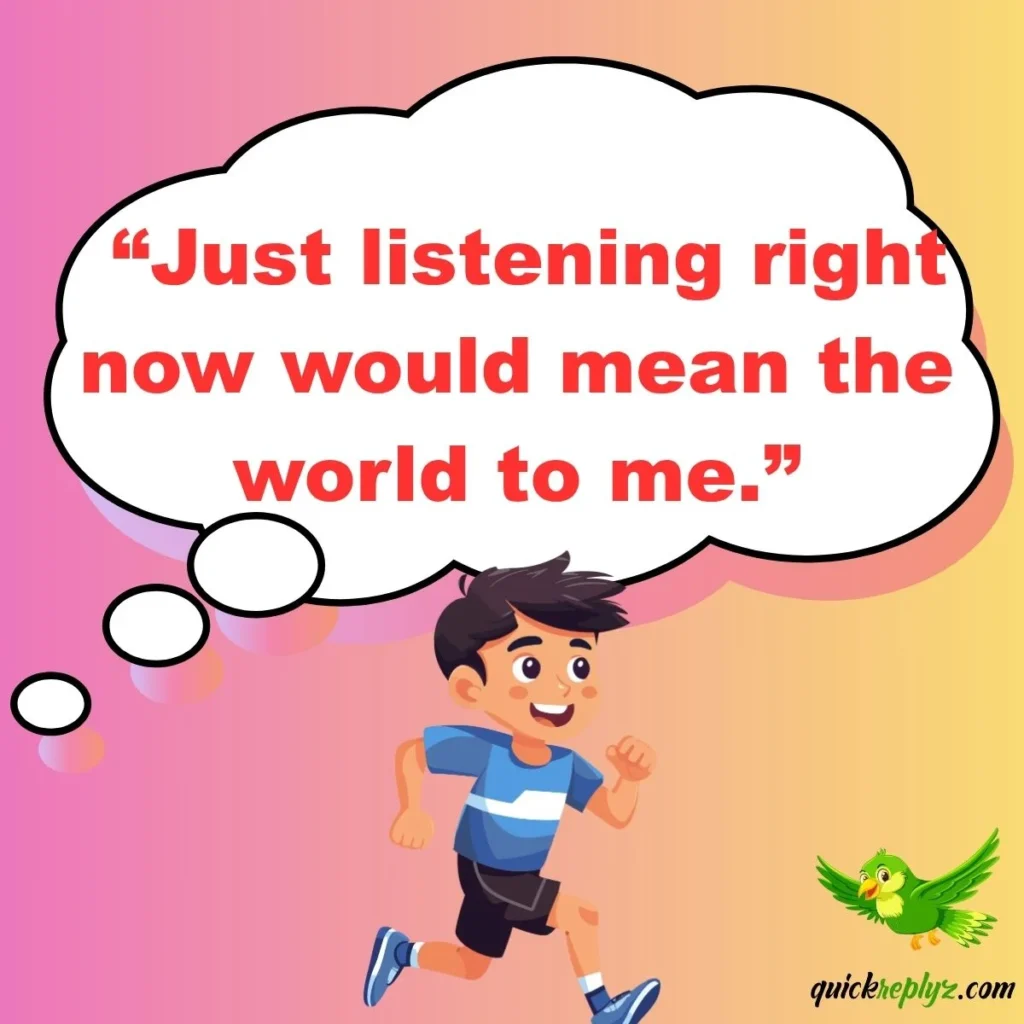
Story: When I was going through a rough patch after a job rejection, I didn’t need advice or solutions. I just wanted someone to listen without judgment. My best friend asked, “How can I best support you?” and I replied, “Just listening right now would mean the world to me.” That one sentence opened the door to emotional relief.
Example:
“Just be there to listen. That’s all I need right now.”
Best Use: When you’re emotionally overwhelmed and just need someone to hold space.
2. “Could you check in on me later this week?”
Story: After my surgery, people would offer help, but I felt awkward asking. So I started saying, “Could you check in on me later this week?” It gave them a role and reminded me I wasn’t alone.
Example:
“Would you mind texting me on Friday to see how I’m doing?”
Best Use: When you’re not sure what you need now but may need support later.
3. “I need help organizing my thoughts—can you talk it out with me?”
Story: During a stressful project, my brain felt scrambled. I couldn’t make a decision. My coworker asked how to help, and I said, “Help me talk through this.” It clarified everything.
Example:
“Can we brainstorm together? I need to get my thoughts in order.”
Best Use: For moments when you’re mentally stuck and need a sounding board.
4. “Honestly, I’m not sure yet—but thank you for asking.”
Story: Sometimes, just acknowledging someone’s willingness to help is enough. I once told a friend, “I don’t know what I need right now, but I’m glad you asked.” It bought me time without feeling pressured.
Example:
“I appreciate you asking. I’ll let you know when I figure it out.”
Best Use: When you’re confused or overwhelmed.
5. “Could you help me with [specific task]?”
![“Could you help me with [specific task]?”](http://quickreplyz.com/wp-content/uploads/2025/08/could-you-help-me-with-specific-task-1024x1024.webp)
Story: A friend once helped me put together a presentation the night before a deadline. I didn’t want to ask initially, but when she offered, I replied, “Could you help with the slides?” She was glad I asked.
Example:
“Would you mind helping me edit my résumé?”
Best Use: When you need hands-on support.
6. “Keep reminding me that I’m doing okay.”
Story: Self-doubt can be loud. During my exam prep, I asked my sister to remind me I was doing my best. Her regular texts kept me sane.
Example:
“Just remind me I’m not a failure—even when I feel like one.”
Best Use: For times of low self-esteem or anxiety.
7. “Can you help me set boundaries with others?”
Story: I was saying yes to everyone and burning out. My partner helped by reminding me it was okay to say no. I asked, “Can you support me by helping me say no to things?”
Example:
“Help me stay firm about not overcommitting.”
Best Use: When you struggle with people-pleasing.
8. “Can we spend some quiet time together?”
Story: Sometimes, I didn’t need advice or a pep talk—just quiet company. A silent movie night or shared coffee helped more than words.
Example:
“Can we just hang out quietly? I’d really appreciate that.”
Best Use: For introverts or moments of emotional exhaustion.
9. “I need help staying accountable to my goals.”
Story: I kept procrastinating on my fitness goals until I asked my friend to text me daily reminders. That accountability changed everything.
Example:
“Would you check in with me about my workouts?”
Best Use: For long-term goals or habit-building.
10. “Can you give me a distraction?”
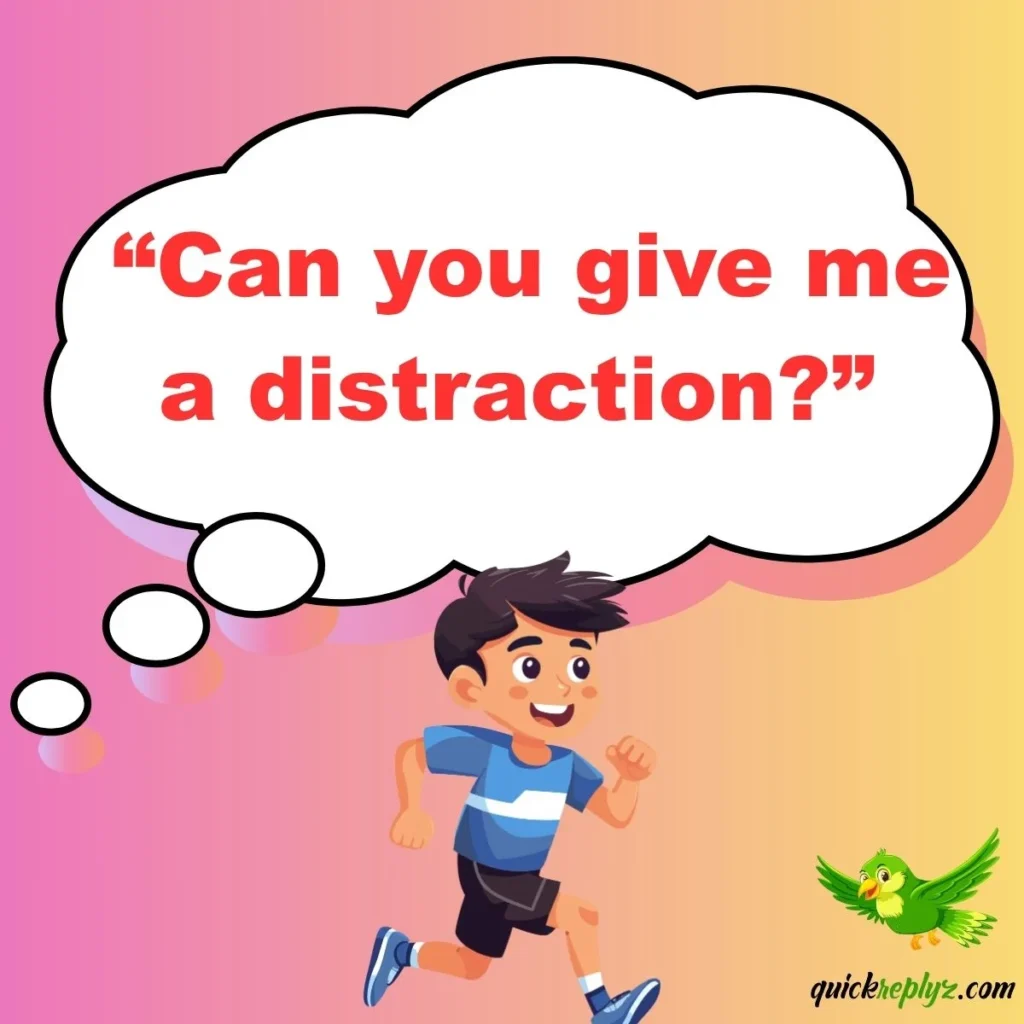
Story: During a breakup, what helped most was my cousin dragging me to karaoke. I had asked her, “Help me forget for a while.”
Example:
“Take me out for ice cream or something silly, please.”
Best Use: When you’re emotionally overwhelmed and need fun.
11. “Help me laugh again.”
Story: I was in a rut, and nothing felt funny. Then my friend sent me a hilarious meme thread after I asked, “Make me laugh again?” It shifted my energy.
Example:
“Send me a stupid meme or a funny video. I need it.”
Best Use: When humor is the medicine.
12. “Can you run an errand for me?”
Story: One time I was sick and out of groceries. My friend asked how to help, and I asked for milk and bread. A lifesaver.
Example:
“Would you mind picking up my prescription?”
Best Use: When you’re physically unable to manage daily tasks.
13. “Just tell me everything will be okay.”
Story: Even if it’s not logical, hearing “It’ll be okay” can soothe the heart. I’ve said this more times than I can count.
Example:
“I know you can’t fix this, but just tell me it’ll pass.”
Best Use: When you need emotional reassurance.
14. “Remind me to take care of myself.”
Story: I forgot to eat when I was swamped with work. My partner would text: “Did you eat lunch?” That was the support I never knew I needed.
Example:
“Can you remind me to drink water and take breaks?”
Best Use: During burnout or high-stress periods.
15. “Help me break this into small steps.”
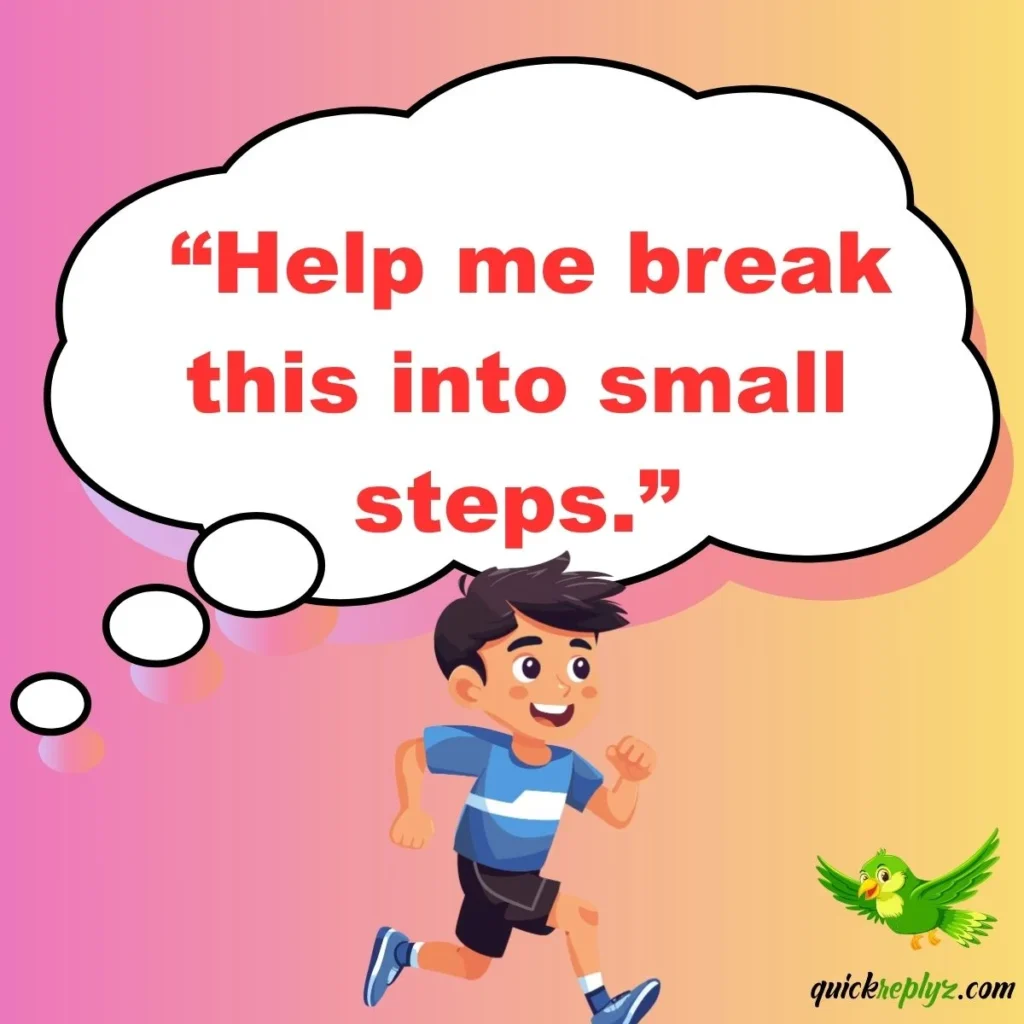
Story: Big tasks felt like mountains. A friend helped me turn them into molehills. That’s real support.
Example:
“Can you help me divide this project into parts?”
Best Use: When you’re overwhelmed by a big goal or decision.
16. “Validate my feelings—even if they don’t make sense.”
Story: I once cried over something small, and a friend said, “It makes sense that you feel this way.” I instantly felt safe.
Example:
“Just tell me it’s okay to feel like this.”
Best Use: When emotions are intense or confusing.
17. “Can you back me up in that meeting/convo?”
Story: I was about to confront my boss about a project. I asked my colleague, “Can you back me up?” She did. I felt empowered.
Example:
“Can you be there while I talk to them?”
Best Use: For difficult conversations or confrontations.
18. “Just sit with me, no need to talk.”
Story: Silence can be healing. I once sat with a friend on a park bench, no words needed. It was everything.
Example:
“Just be with me. No fixing. Just presence.”
Best Use: For emotionally raw or grieving moments.
19. “Remind me of my strengths.”
Story: When self-doubt creeps in, having someone list your wins is powerful. My mentor once read my résumé back to me when I was doubting myself.
Example:
“Tell me what you think I’m good at.”
Best Use: During job searches, anxiety, or failure.
20. “Can you help me plan next steps?”
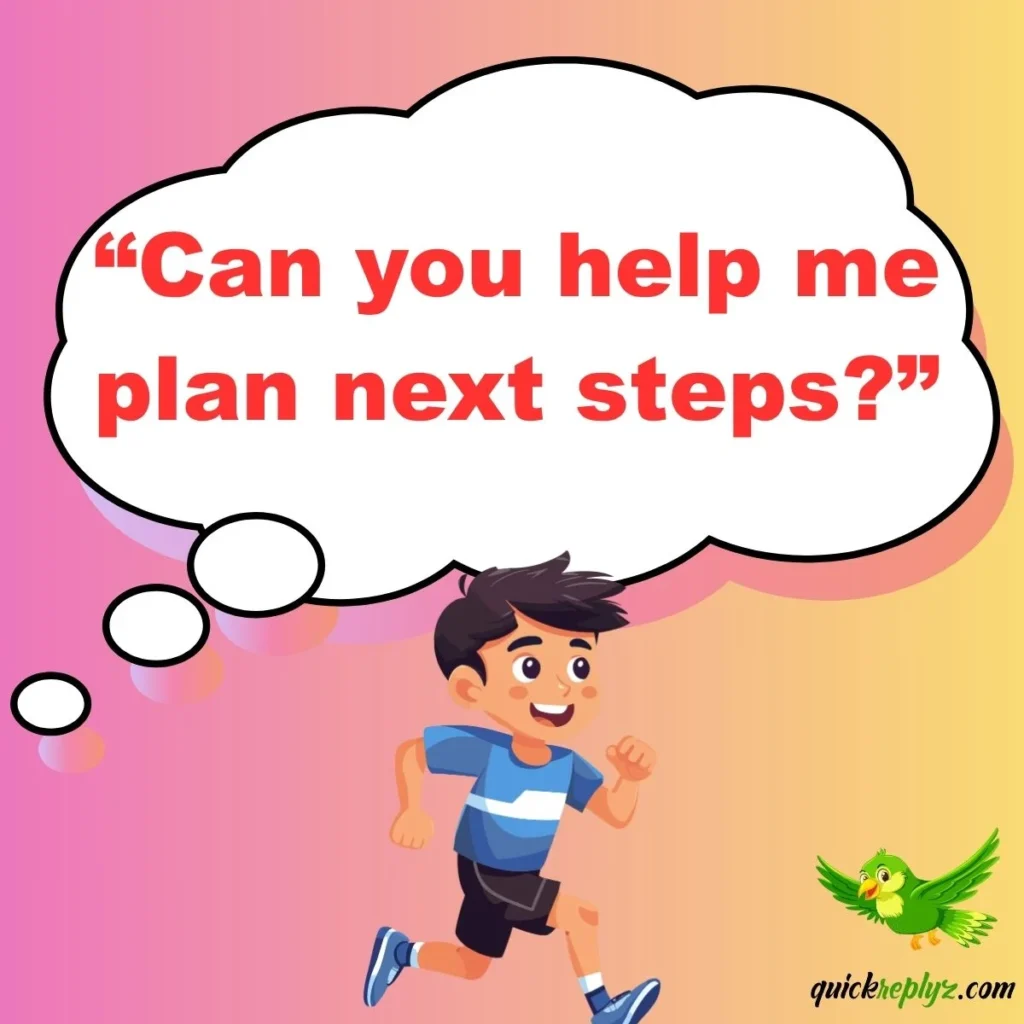
Story: After losing my job, I didn’t know what came next. A friend helped me create a plan—one step at a time.
Example:
“Let’s map out what I should do next together.”
Best Use: When you’re stuck or in transition.
Also Read This :30 Hope You Had a Great Holiday Replies
21. “Hold me accountable without judgment.”
Story: I told a friend, “Remind me to do this—but don’t shame me if I mess up.” That kind of support helped me grow.
Example:
“Can you nudge me about this gently if I slack off?”
Best Use: For behavior change or consistency.
22. “Check in randomly—it helps more than you know.”
Story: Unexpected “How are you really?” texts have saved me. I asked a few close friends to do that—and they did.
Example:
“Send me a random check-in text now and then.”
Best Use: For ongoing emotional support.
23. “Help me stay off my phone.”
Story: I kept doom-scrolling after bad news. I asked my friend to help keep me accountable. A week later, I was more peaceful.
Example:
“Hide my phone if I reach for it during dinner.”
Best Use: When you need to unplug and be present.
24. “Can you take something off my plate?”
Story: I once had three deadlines and a pile of laundry. I asked my partner to handle one. It saved my sanity.
Example:
“Can you handle dinner tonight? I’m drowning.”
Best Use: For times of overwhelm or stress.
25. “Give me honest feedback—but gently.”
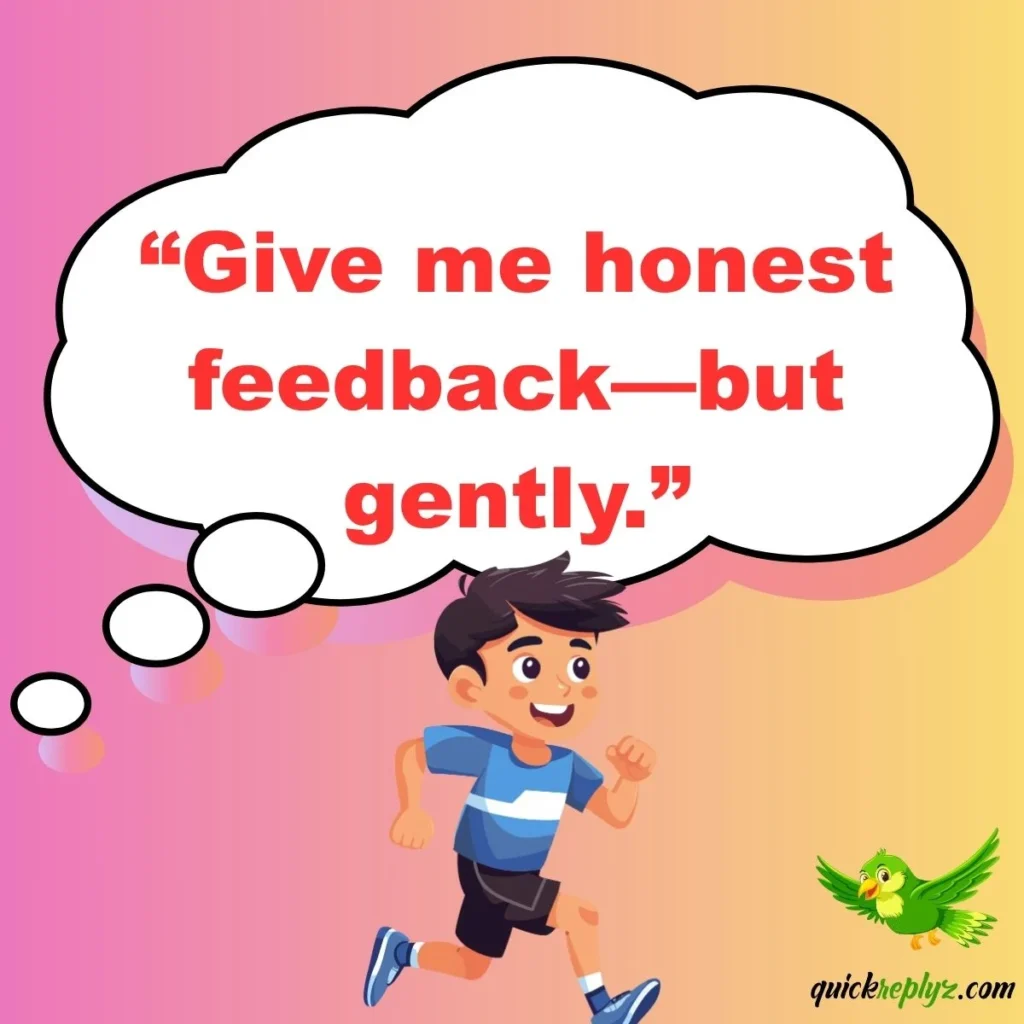
Story: Growth comes from truth—but kindness matters. My best feedback came from someone who asked, “May I be honest?”
Example:
“Tell me what I need to hear—but be kind.”
Best Use: When you’re open to growth and reflection.
26. “Tell me what’s worked for you.”
Story: I was struggling with anxiety, and a friend shared her coping rituals. I tried them. They helped. I’m glad I asked.
Example:
“What helped you when you went through something like this?”
Best Use: When looking for relatable advice.
27. “Can you sit with me while I do this scary thing?”
Story: I was terrified of sending a resignation email. I asked a friend to sit beside me while I typed it. Just that presence helped.
Example:
“Be here while I call the doctor—I’m nervous.”
Best Use: For anxiety-inducing tasks.
28. “Keep me grounded when I spiral.”
Story: Anxiety makes my mind race. I once asked, “If I start spiraling, can you bring me back?” She did, lovingly.
Example:
“Remind me to breathe if I get lost in my head.”
Best Use: For overthinkers or anxious moments.
29. “Can you remind me I’m loved?”
Story: During a depressive period, I texted a friend: “Remind me I matter.” They did. I cried. It helped more than therapy.
Example:
“Tell me why you care about me—just once in a while.”
Best Use: During emotional lows or loneliness.
30. “Just keep being yourself—that supports me the most.”
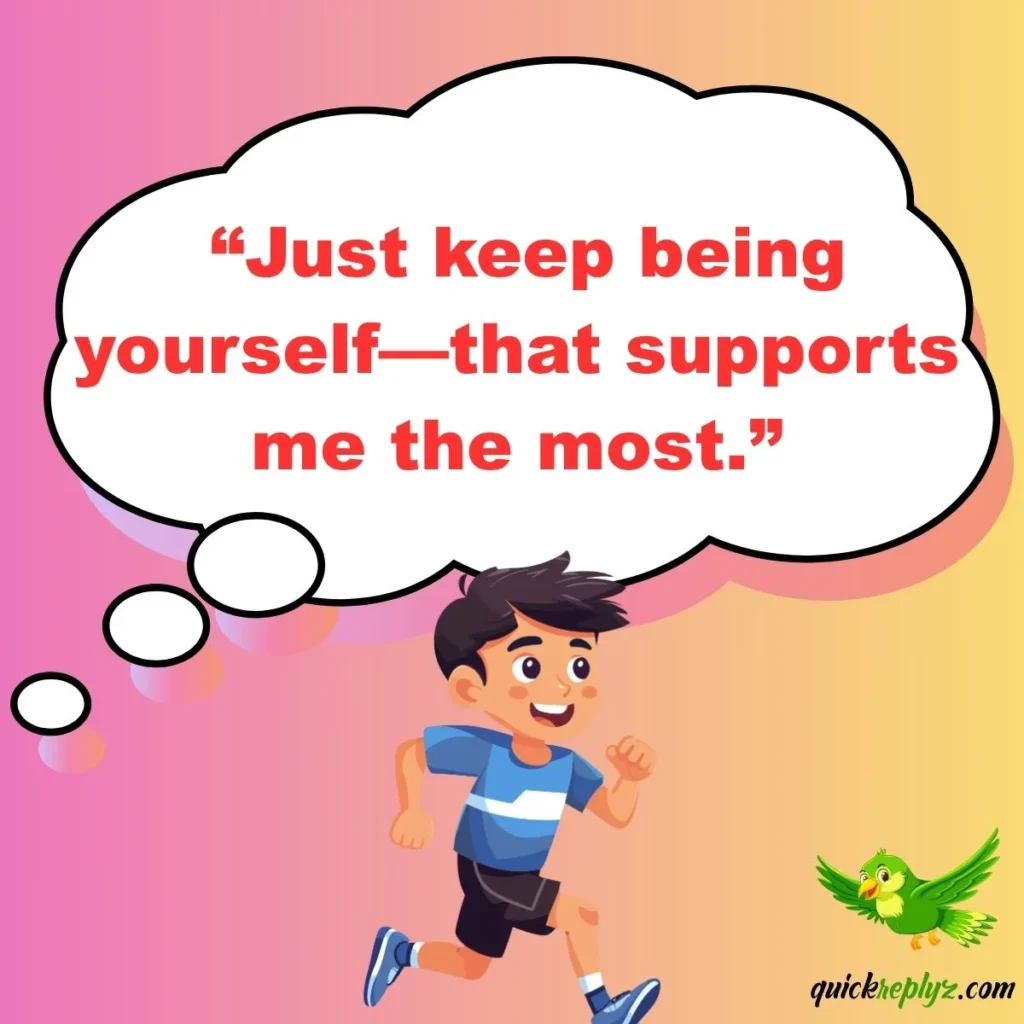
Story: Some people don’t need to do anything extra. Their presence alone is healing. I once said this to my mom—and it was the truth.
Example:
“You just being you helps me more than you know.”
Best Use: When the person’s natural presence is comforting.
Conclusion
When someone asks, “How can I best support you?”, it’s not just a question — it’s an invitation for connection. These 30 ways to respond give you tools to be honest, vulnerable, and clear while inviting others to support you meaningfully. Whether you need action, space, reassurance, or presence, there’s always a way to articulate it.
FAQs
Q: Why is it hard to answer “How can I best support you?”
A: It can be hard because we often don’t know what we need. Taking time to reflect on your emotions or current challenges can help you respond authentically.
Q: Should I always have an answer ready?
A: No. It’s okay to say “I’m not sure right now” — even that is a meaningful response.
Q: How do I know what kind of support I need?
A: Ask yourself: Do I want advice, action, or just someone to listen? Your emotional needs usually point the way.
Q: What if I say the wrong thing?
A: There’s no perfect response. As long as you’re honest and respectful, your answer is valid.

